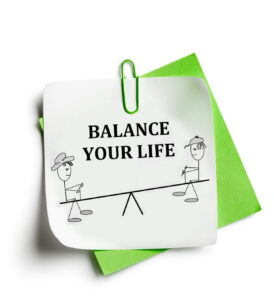 Mental health is complex because it runs the gamut of one to ten, with ten being not good and one being the bottom of the dark hole. Topics on how to improve mental health are on the entire spectrum. But one thing that flows through it all is balance. If we can think, plan, and live with balance as a goal, most of the time, we have better odds of creating a life above a five—a benchmark for evaluating.
Mental health is complex because it runs the gamut of one to ten, with ten being not good and one being the bottom of the dark hole. Topics on how to improve mental health are on the entire spectrum. But one thing that flows through it all is balance. If we can think, plan, and live with balance as a goal, most of the time, we have better odds of creating a life above a five—a benchmark for evaluating.
A friend posted on Facebook about her experience avoiding and finally reading Elie Wiesel’s book, “Night.” She said she wept as she read but finished it because the book had chosen her—it was time.
I was curious enough to go to a thrift store and buy the book for $2.00. According to Alfred Kazin’s quote on the back cover, “To the best of my knowledge, no one has left behind him so moving a record.”
Because I don’t cry many tears, I did not weep as my friend did, but I wished I had. The fear, frustration, hurt, and unfairness of our inhumane history certainly warrant tears of anger.
The book was about treatment, internal strength, survival, and mainly death in concentration camps during WWII.
My friend’s words, along with my reading of the book, reminded me of the value of tears. Laughter is an excellent tool for an uplifted spirit, but balancing laughter with tears, when warranted, is valuable.
Ten years ago, my late husband, Cal, and I visited Auschwitz and Birkenau in Poland—both living museums.
Viktor Frankl, who survived concentration camps because he had a purpose, wrote my favorite book, “Man’s Search for Meaning.” His development of Logotherapy is at the root of my psychotherapy theories and practices. He said, “He who has a WHY can bear any HOW.” That made sense to me.
From my readings, visiting the actual camps, and wandering the somber National Holocaust Museum in D.C., the message outside the museum, “Remember what you saw,” simply states its relevance for today.
Elie Wiesel (age 15) also credited meaning for his survival—He needed to survive for his father, who, unlike his mother and sister, was spared the crematory upon their cattle train arrival in Birkenau.
We need to cry when we have the chance. Sometimes, what we’re crying about is surprising and illogical, but cry anyway–we need to. Events or opportunities come to us, as did the book my friend surrendered to reading. Life gives us opportunities and reasons to belly-laugh and cry for travesties, loss, injustice, fear, frustration, hopelessness, etc. Tears keep our hearts from breaking; they heal, help settle the pain, manage our anger, and even clean the grit from our eyes.
They help shed the gunk inside of us. Laughter and crying heal the heart.
Until the next time: Live while you live.
Jennifer Goble, Ph.D., LPC, is the author of “My Clients…My Teachers,” and the blogger and writer of Rural Women Stories: www.ruralwomenstories.com.
Powered by WPeMatico